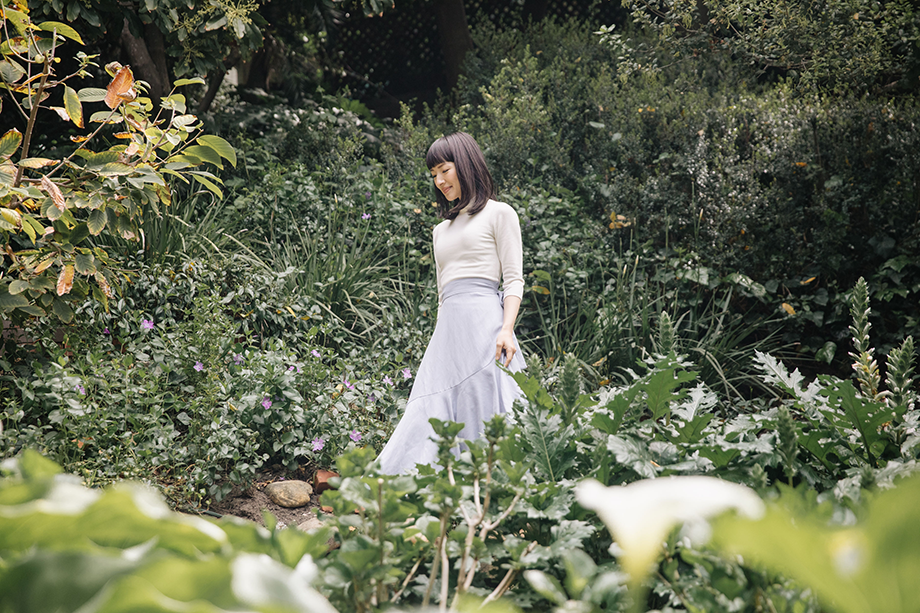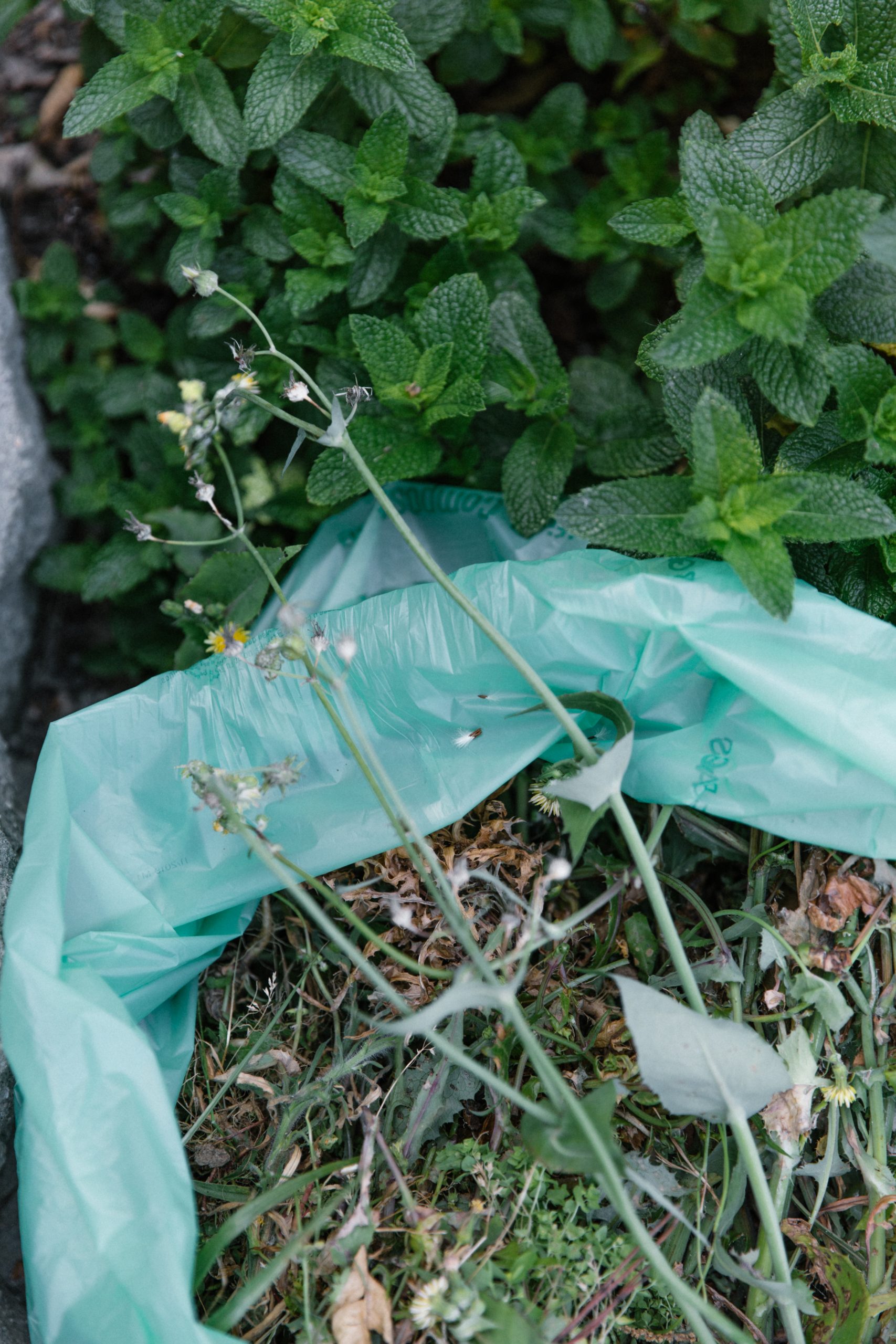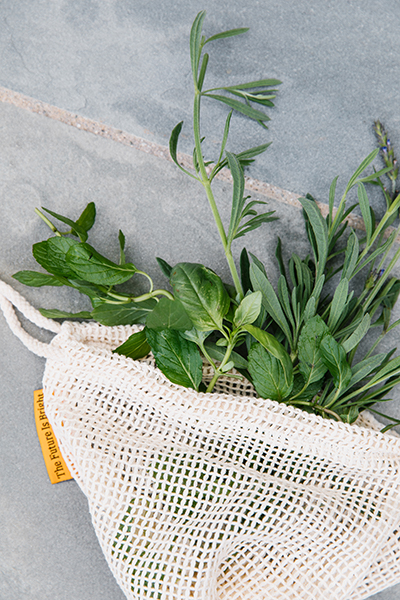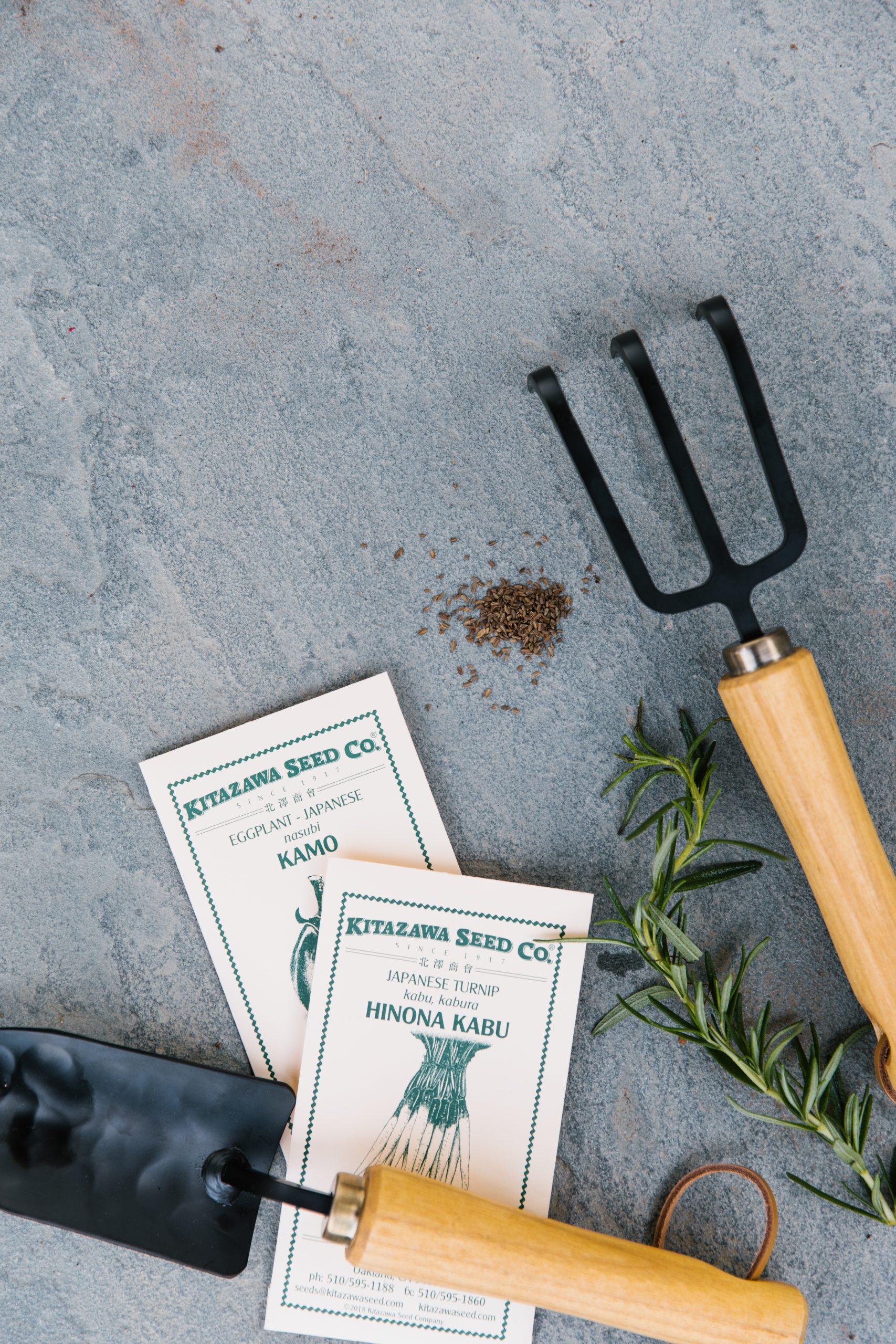8 Ways to Live More Sustainably

- Method 01Create a walk-only day
- Method 02Organize your groceries
- Method 03Commit to cloth
- Method 04Plan a clothing swap
- Method 05Review your local recycling policies
- Method 06Collect your compost
- Method 07Skip the produce bags and buy in bulk
- Method 08Start small with a petite garden

Tidying up our private spaces often helps us notice how we fit within the greater world around us — sometimes for the first time. In discovering that letting go of clutter and disorder sparks joy, we start to notice simplicity everywhere around us. We are reminded that nature itself is an act of organization, both beautiful and imperfect.
Here are 8 tips for reducing your impact on nature and making each day a bit more joyful while doing so.
Create a walk-only day
To walk is to be more present. It allows us to connect more deeply with our neighborhood and neighbors as well as ourselves. By opting out of the car or public transportation one day a week, we reduce our impact while practicing mindfulness. To start, pick a weekend day when you might have more time to move on foot. Plan a walk to support local businesses or teach your child the names of plants during a long afternoon stroll.
Organize your groceries
Organizing your fridge and pantry according to the KonMari Method™ welcomes clarity into your space and sustainability into your life. By keeping perishables tidy, visible and within reach, you will reduce your food waste every week.
Apply a “first in, first out” approach to your shelves so that you can enjoy using fresh goods before they are lost to the compost bin. If you find you often discard leftovers, try freezing part of what you cook right away. The result is a delicious future meal exactly when you need it.
Commit to cloth

To share a meal at a carefully laid table is a joy-sparking act. A set of washable linens both elevates the dining experience and reduces paper waste. Keep them folded in thirds in a drawer near your flatware, and slip soiled napkins into your hamper to wash with your next load of laundry. You will find they take little space or effort but make every meal a little bit more celebratory.
Plan a clothing swap
Each season provides an opportunity to revisit your closets. After letting go of what no longer sparks joy, and before shopping for new items, plan a clothing swap with friends and family. This can prove especially useful if your social circle includes growing children. Exchanging lightly used goods is an excuse to gather with those you love while also avoiding the drawbacks of fast fashion. For more tips on recycling, upcycling and consigning clothing items that no longer spark joy, check out our Clothing Discarding Guide.
Review your local recycling policies
Every state has a different approach to its recycling programs. Sometimes these policies range even from city to city. Spend some time researching your local rules around recyclable products and make sure you are following them appropriately at home.
Collect your compost

Throwing your food scraps, garden trimmings and biodegradable packaging in trash designated for the landfill doesn’t spark joy – for you or for the Earth. In landfills, food waste turns into methane, a bad-in-excess greenhouse gas.
Whether you’re composting-curious or already a convert, the process doesn’t need to be difficult. Just collect food scraps, banana peels, coffee grounds, eggshells and other compostable materials bound for the garden or beyond in a compost collection bag. Even if you don’t have a pile of your own, you can even take these items to a neighborhood composting site for a proper send-off.
Skip the produce bags and buy in bulk

Grocery store packaging is an often overlooked form of waste. Beyond bringing your own tote bags, there are other ways to cut down on your impact while shopping. Buy loose produce rather than items that come pre-packaged in plastic containers, and avoid putting vegetables or fruits in separate plastic bags. If possible, bring reusable produce sacks or jars to fill with grains, nuts and other snacks in the bulk section.
Start small with a petite garden

While growing your own vegetables comes with all sorts of advantages, you may not have the time, space or courage to commit to a full backyard garden project. A small window box or potted herb garden is a manageable alternative for almost any household. It not only cuts down on purchasing herbs from grocery stores — often in the plastic containers — but it also encourages you to add fresh greens to your family’s meals and to cook at home more often.







